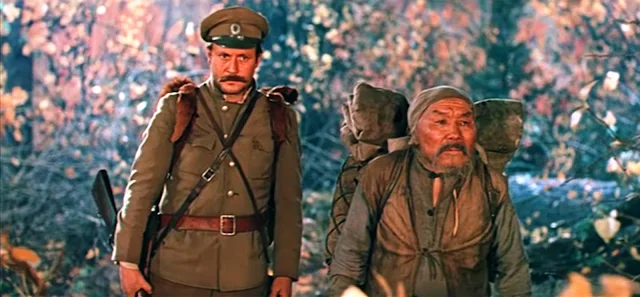 |
| Sam Bottoms, Eileen Brennan, and Timothy Bottoms in The Last Picture Show |
Duane Jackson: Jeff Bridges
Jacy Farrow: Cybill Shepherd
Sam the Lion: Ben Johnson
Ruth Popper: Cloris Leachman
Lois Farrow: Ellen Burstyn
Genevieve: Eileen Brennan
Abilene: Clu Gulager
Billy: Sam Bottoms
Charlene Duggs: Sharon Ullrick
Lester Marlow: Randy Quaid
Sheriff: Joe Heathcock
Coach Popper: Bill Thurman
Joe Bob Blanton: Barc Doyle
Director: Peter Bogdanovich
Screenplay: Larry McMurtry, Peter Bogdanovich
Based on a novel by Larry McMurtry
Cinematography: Robert Surtees
Production design: Polly Platt
Film editing: Donn Cambern
Not having seen The Last Picture Show for a long time, I was startled to realize that the protagonist of the film is Sonny Crawford, played by Timothy Bottoms. Ben Johnson and Cloris Leachman won Oscars for the film, Jeff Bridges and Ellen Burstyn were nominees, and Cybill Shepherd and even Randy Quaid went on to more prominent careers than Bottoms did, but his quiet, shyly withdrawn character is the one that carries the movie from beginning to end. The role could have been played by Bridges, but I think director Peter Bogdanovich made the right decision: Bridges is too up-front an actor for the role of Sonny. Bottoms's ability to fade handsomely into the background makes him a perfect actor for a character who needs to be quietly passive. He shouldn't outshine the rest of the ensemble, but instead bring home the film's message about the damage that can be done in a dying community like Anarene, Texas -- an antithesis to the sentimentalized small towns that for so long dominated American movies. What emerges from the starved lives of the citizens of Anarene is not a sense of community, a willingness to love and help one's neighbor, but a kind of deep meanness, a self-righteous self-centeredness. For me, the scene that best captures this emotional and moral stuntedness is the one in which the town goes out in hysterical pursuit of Joe Bob Blanton, the preacher's sun whom we see being bullied and mocked throughout the movie. In our times, I suspect, Joe Bob's revenge would have involved shooting up the local high school, but instead he picks up a little girl and drives off into the country with her, setting off a frenzy. But when he's found and carted off to jail, everyone seems to forget about the little girl: We see her tagging along, virtually unnoticed, after the mob that's rejoicing in its victory. We remember how surprised and disgusted people were when Sam the Lion left Joe Bob a thousand dollars in his will -- probably to tell the boy to get the hell out of Anarene before it's too late. Unfortunately, it seems to be too late for everyone else. Duane goes off to Korea, but he promises to return if he doesn't get shot. Jacy, we hear, is in Dallas, but she'll maintain the carapace of vanity and manipulativeness she evolved in Anarene wherever she goes. At the end, we're left with Sonny and Ruth, reunited in lonely hopelessness.








